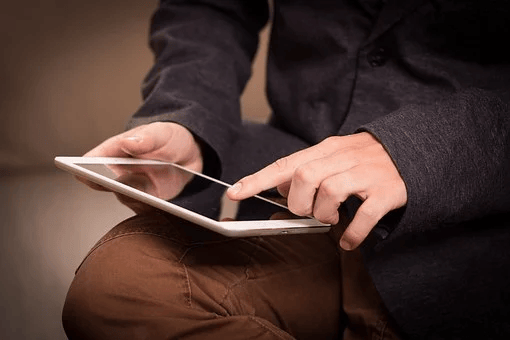Technology has integrated into every aspect of life now – both for consumers and business owners. This has led to the rise of apps to help with every part of the day. From entertainment to working out to learning new languages to shopping, there’s an answer to almost any need on the App Store.
However, even though the App Store caters to iOS apps specifically, there are still different devices to shop for. From different generations of iPhones to iPads and more, Apple hasn’t slacked off in offering its customers plenty of options.
App developers can use this to their advantage and specialize their apps to work on different devices such as the iPad. This adds a unique touch to the user experience and comes with a host of additional benefits.
Why iPad Specialization Is Worth Investing in for Apps
Different Devices Have Different Capabilities
While smartphones and tablets have similar purposes across like models, they do differ. This is especially true when it comes to the discrepancies between the two. The way that an iPad and iPhone function is fundamentally similar but they do have some stark differences.
This is part of why specializing an iOS app for an iPad rather than leaving it as a blanket iOS option designed for both iPads and iPhones is a good idea. It allows you to take advantage of the specific features a device offers.
For instance, iPads offer more space on-screen than a standard iPhone. This gives developers more room to experiment with the layout of an app in an iPad version compared to an iPhone-oriented version of an app. Details like this make set an iOS app for each device apart from one another in a positive light.
Different Devices Perform Differently

As just stated, different devices have different capabilities. As such, the abilities of an app change depending on what a specific device can do. Yet, it’s crucial to pay attention to the differences between devices as a whole – both the shortcomings of a different device as well as the positive improvements.
When iPad app development services develop an app an iOS app, they need to consider how that app will perform on different iOS devices. Will the design for the app look just as good on an iPad as it does on an iPhone.
For example, if there is a feature that works well on an iPhone but doesn’t work well on an iPad, a development company won’t want to just leave it there. This is likely to lead users who only use the app on their iPad to think that the feature is poorly designed. It’s better to develop a specialized version of the iOS app for iPad users that works seamlessly with no subpar components that could damage a user’s impression of the quality of the app.
More Versions Often Leads to More Downloads
There are plenty of ways to gauge app success and developers have to consider them in tandem to measure the overall success of an app. This includes metrics such as the profit that an app has grossed and the rating it has reaped on the App Store.
Another metric to pay attention to is the number of downloads an app has. This is, by far, not the only thing to consider but it is a good indicator of how popular an app is. Since popularity has so much to do with grossed profit and the attention an app gets, this is well worth considering.
When an app is available for both iPhone and iPad with specialized differences, users who are a fan of the app may get the app for both devices. This boosts a company’s download stats and increases general attention to the app.
Cater to iPad-specific Users

Brand loyalty in tech is strong for many. There are plenty of people who love iOS and Apple products are sure to use the brand for all of their tech devices. This can range from only using iPhones for their smartphones, Macs for their computers, and iPads as tablets.
However, this isn’t always the case. There are plenty of iPad users who choose to have an Android phone or differently branded PC or laptop when they’re buying tech even though their iPad is their favorite device.
When developers specialize in an app to work on an iPad, a company is catering specifically to iPad users. This is part of catering to a wider audience and making sure that an app is available to as many potential customers as possible. The higher the volume of users that can access an app, the more users an app will attract and the more successful it will reap.
Taking Advantage of iPadOS
There’s also a benefit in creating iPad specialized apps because there’s a specialized operating system for iPad now.
In 2019, the software chief of Apple, Craig Federighi, announced the upcoming release of iPadOS. This is an operating system in a similar vein to iOS but it’s specifically made for apps that developers designed for use on an iPad rather than an iPhone, for example.
This is part of Apple’s move to make the iPad a cross between a user’s mobile device and computer. It expands on the capabilities of apps on the iPad including better window manipulation and the ability to use two apps at once in side-by-side displays.
This offers iOS developers considering iPad specialization a unique opportunity to do more with an app than they thought they could previously. This operating system makes it easier for app developers to adopt some computer functionality compared to what they can do with a blanket app designed to work the same way on an iPhone.
Conclusion
Developing a mobile app takes a lot of thought and consideration. Even if your app is a native iOS app, it’s still crucial to consider how that app will operate across different devices. To make the most out of the capabilities of different devices, ensure that high quality is maintained across devices, and that popularity and download rates remain high, specialized apps go a long way. Developers can also use specialized app versions to take advantage of the new iPadOS format.
